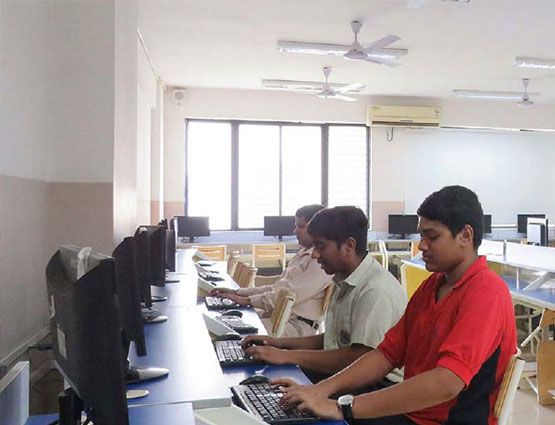CBSE Education: A Comprehensive Guide to Benefits, Features, and Future Prospects
Key Takeaways
Overview of the CBSE
Benefits of the CBSE curriculum
Key features of the CBSE education system
History and Overview of CBSE
1. Formation and Development of CBSE
The Central Board of Secondary Education (CBSE) was formed in 1962, marking a significant step in India's educational development. It was established to provide a common standard for education across India, enabling students to have a consistent learning experience irrespective of their location.
2. Mission and Vision of CBSE
The mission of CBSE is to provide robust, vibrant, and holistic education that engenders excellence in every sphere of human endeavor. The vision includes promoting innovation in teaching-learning methodologies by devising student-friendly and student-centered paradigms.
3. Overview of CBSE's Reach and Influence
CBSE has a vast reach with over 21,000 schools in India and approximately 220 schools in 28 foreign countries. It is one of the most widely recognized and respected education boards globally.
Structure and Curriculum
1. Subjects Offered at Different Levels
CBSE offers a wide range of subjects at various levels, from primary to secondary and senior secondary stages. The curriculum includes essential subjects such as Mathematics, Science, Social Studies, and languages, along with electives that cater to diverse student interests.
2. Continuous and Comprehensive Evaluation (CCE) System
The CCE system was introduced to assess students' development continuously and comprehensively. It focuses on both scholastic and co-scholastic areas, aiming to reduce the stress of exams and provide a holistic assessment of a student's performance.
3. Focus on Holistic Development
CBSE emphasizes the overall development of students, encouraging participation in sports, arts, and other extracurricular activities alongside academics. This approach aims to nurture well-rounded individuals equipped with essential life skills.
Benefits of CBSE Education
1. Standardized Syllabus Across India
CBSE provides a standardized syllabus that ensures uniformity in education across different regions. This is particularly beneficial for students who relocate frequently, as it allows them to seamlessly continue their education without disruption.
2. Preparation for Competitive Exams
The CBSE curriculum is designed to align closely with the requirements of various competitive exams like JEE, NEET, and others. This alignment helps students prepare effectively for these exams while still in school.
3. Emphasis on Skill Development
Beyond academic knowledge, CBSE focuses on skill development, encouraging critical thinking, problem-solving, and creativity. This prepares students to tackle real-world challenges effectively.
Key Features of CBSE Schools
1. Teaching Methodologies
CBSE schools adopt innovative teaching methodologies that go beyond traditional rote learning. Emphasis is placed on interactive and student-centered learning techniques.
2. Co-curricular Activities
A wide range of co-curricular activities are offered in CBSE schools, including sports, arts, music, and drama. These activities help in the holistic development of students and nurture their talents and interests.
3. Infrastructure and Facilities
CBSE schools are known for their robust infrastructure and facilities, including well-equipped laboratories, libraries, and sports facilities, providing a conducive environment for learning and growth.
CBSE vs. Other Education Boards
1. Comparison with ICSE, State Boards, and IB
CBSE, ICSE, State Boards, and IB each have their unique strengths and weaknesses. CBSE is known for its national uniformity and alignment with competitive exams, while ICSE offers a detailed and extensive curriculum. State Boards are tailored to regional needs, and IB focuses on international standards.
2. Pros and Cons of Each System
CBSE: Advantageous for its standardized approach and competitive exam preparation but can be theoretical.
ICSE: Offers a broad curriculum but may be intense and extensive.
State Boards: Region-specific but might lack uniformity and standardization.
IB: Provides a global perspective but can be expensive and demanding.
3. Reasons to Choose CBSE
Choosing CBSE can be beneficial for students aiming for national competitive exams and those who might relocate frequently within India. Its focus on holistic education and skill development makes it a strong choice for many parents and students.
Success Stories and Alumni
1. Notable Alumni of CBSE Schools
CBSE schools have produced many notable alumni, including successful entrepreneurs, scientists, artists, and public figures who have made significant contributions to their fields.
2. Success Stories of Students
Many CBSE students have excelled in various competitive exams, securing top ranks and admissions to prestigious institutions both in India and abroad.
Challenges in CBSE Education
1. Common Challenges Faced by Students
Despite its strengths, CBSE students often face challenges such as high academic pressure and the need for extra coaching for competitive exams. The vast syllabus can also be overwhelming for some students.
2. Criticisms and Areas for Improvement
Critics argue that the CBSE curriculum sometimes focuses too much on theoretical knowledge at the expense of practical skills. There is also a need for more emphasis on personalized learning approaches to cater to diverse student needs.
Future of CBSE Education
1. Upcoming Changes and Reforms
CBSE is continually evolving, with upcoming changes aimed at further enhancing the education system. These include integrating more technology in classrooms, updating the syllabus to reflect current trends, and promoting experiential learning.
2. Vision for the Future of CBSE
The future vision of CBSE includes a more flexible and inclusive education system that caters to the individual needs of students, preparing them for the challenges of the modern world.
FAQs
1. What is the full form of CBSE?
The full form of CBSE is the Central Board of Secondary Education.
2. How is the CBSE curriculum different from others?
The CBSE curriculum is standardized across India, aligned with competitive exams, and emphasizes holistic development and skill-based learning.
3. What are the advantages of studying in a CBSE school?
Advantages include a standardized syllabus, excellent preparation for competitive exams, and a focus on overall student development.
4. How does CBSE prepare students for competitive exams?
CBSE's curriculum is closely aligned with the requirements of major competitive exams, providing a strong foundation and comprehensive preparation for students.
Conclusion
In summary, the CBSE education system offers a well-rounded and standardized curriculum that prepares students for both academic and real-world challenges. Its emphasis on holistic development, competitive exam preparation, and skill development makes it a preferred choice for many students and parents across India.

